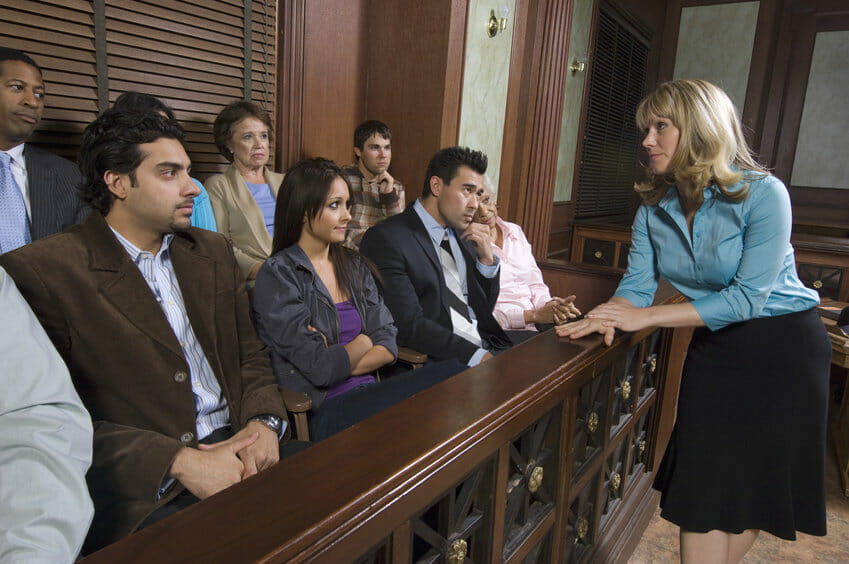It is important to be legally educated and aware of your rights considering the range of unlawful activity occurring these days.
Not knowing your rights can land you in messy situations and the next minute, you could be in court trying to defend yourself against a crime you did not commit.
When you are clear with your rights, you can avoid saying the wrong things that can later be used against you in court or recorded as evidence.
Like the other states in America, Arizona also has its own constitution and laws to protect its citizens and ensure their safety.
Let’s take a look at some essential rights everyone residing in the state of Arizona should know.
Habeas Corpus
Habeas corpus is a type of writ. It protects a person from unlawful imprisonment and punishment.
In Arizona, a citizen can file a report either early on in the case or after orders for arrest are passed.
At any point, if you feel you are being wrongly convicted, it is crucial to connect with a Criminal Defense Attorney in your state.
They will help you prepare a well-written report for the court to consider.
Right to Trial
Every citizen in Arizona has the right to request a jury trial. During this, the judge will examine the evidence and listen to testimonies.
While preparing for the trial, you should gather evidence, secure witnesses, and file several important documents. An attorney can help you with all these tasks.
However, most cases don’t go to trial as it is expensive and tedious. After analyzing the details, your lawyer may recommend a plea bargain.
Right to Privacy
In movies, you must have watched police show up abruptly at homes for searching. And they almost always show a search warrant before entering the house. The latter applies to real-life situations as well.
Searching someone’s house without a warrant is strictly prohibited as it violates their right to privacy. It also extends to an individual’s vehicle, workplace, and other private property.
However, there’s an exception to this rule. Under circumstances where an active suspect has entered a property, a warrant may not be required.
Protection Against Double Jeopardy
No person in Arizona can be punished twice for the same offense.
It is important to note that the law refers to ‘the same offense’ and not an offense of the same nature repeated at a different time.
For example, if you are punished for looting a car, it doesn’t mean you won’t be punished again if you loot another vehicle a month later.
After a mistrial where a proper verdict is not reached because of legal mistakes or the judgment is put on hold, the defendant may be tried again.
If an individual is declared innocent and let go before new evidence is discovered, then there is no scope for the court to prosecute him again.
Right To Remain Silent
Legally, a person has the right to remain silent or not answer any questions asked by the police or a federal agent.
While you may feel like saying a million things to defend yourself, it is essential to exercise this right. Otherwise, if you speak out of impulsivity, any wrong utterance can be used against you in court.
When a criminal case is under trial, decide whether you have to plead the Fifth after consulting your criminal attorney.
Imprisonment for Debt
You cannot be imprisoned for debt or threatened with jail time by the lender or a debt recovery agent.
However, this is not applicable in cases involving fraud and similar situations.
For example, if you avoid paying taxes by deceit or fail to keep up with child support, you might get jail time.
In most cases, problems can be resolved by talking it out with the debt collector and paying it later with an additional charge.
Right to Legal Representation
Every citizen, whether innocent or guilty, has the right to legal representation. It means the right to appoint an attorney to represent them.
If you cannot afford a lawyer, the state has programs that provide legal assistance after ensuring you meet the eligibility requirements. This includes aid for people with disabilities and those aged above 60 years.
The programs include free or low-cost legal services and lawyer referrals. You can choose from one of them depending on the nature of your case.
Right To Plead Not Guilty
If you didn’t commit the crime you are accused of, you have the right to plead not guilty. However, you should provide sustainable evidence before the court to prove your innocence.
Sometimes, you might have committed the crime but had a reasonable excuse to do so. Examples include stabbing a person because they attacked you first or being pulled over for speeding on your way to get help for a medical emergency.
Right To Challenge DUI Charges
Unfortunately, an individual can be wrongly accused of driving under the influence of alcohol. The punishment for this can range from a simple penalty and suspension of license to jail time.
You could get wrongly accused due to unreliable FSTs and inaccurate tests.
Field Sobriety Tests (FST) are a string of tests conducted by a cop to check whether a driver is under the influence of alcohol. While they can serve as an indicator, they are not completely reliable in determining whether a person is drunk.
Standing on one leg or walking in a straight line are some of the tasks in FSTs. Someone completely sober can mess it up out of nervousness. Officers can also judge unfairly and conclude that the driver is drunk.
Other chemical tests are also carried out to check intoxication levels. While they are accurate most of the time, there are cases where improper equipment, medical conditions, and miscalculated test results have resulted in wrong accusations.
Consider hiring a qualified professional to build a solid defense against such DUI accusations.
Conclusion
You can learn more about these rights by browsing informational websites and legal articles. The government of Arizona also has an official website featuring key details about state laws and citizen’s rights to keep the residents safe and informed.




